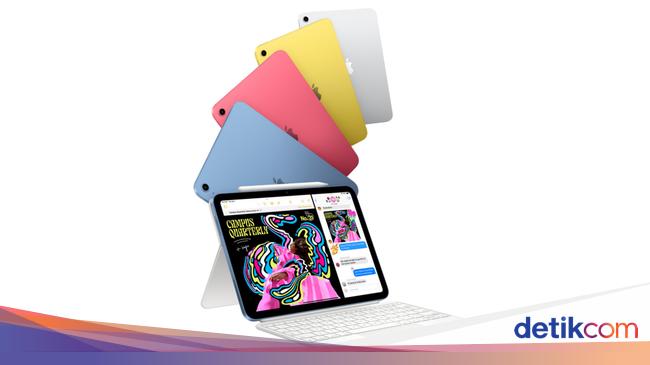At WWDC 2025, Apple showed off plenty of changes in its preview for software upgrades due out later this year, but alongside visual shifts like Liquid Glass, the company also debuted a new Games app designed to be a hub for downloaded games.
It's a continued push for iPhone, iPad and Mac owners to play and connect with others that comes as other gaming companies shift their strategies -- most notably, Apple announced its Games app days after Microsoft revealed its own ROG Xbox Ally, a powerful handheld that crams PC parts into a smaller handheld system.
Ultimately, both approaches play to the strengths of each company and shore up weaknesses. Microsoft doesn't have a mobile phone user base, so it's leaning into gaming-dedicated devices that provide a more conventional gaming experience. Apple is trying to make the iPhone more user-friendly for gaming by offering a space for a personalized library of your games, easier ways to play games with others online and making it more convenient to wirelessly connect third-party controllers or promote phone-attaching controllers like the Backbone.
The clear winners are gamers, who are being given more choices for how they play their games. Apple may be farther behind in gaming-specific software, but its hardware is probably already in gamers' pockets, while Microsoft is introducing another powerful device in the growing handheld space.
While gamers with other systems may not flock to Apple products to play, those who only own iPhones, iPads and Macs are getting more options for what they play, especially as they've started getting more powerful titles that debut on PC and consoles. Last year, the company announced that modern games like Resident Evil 7 and 8 would be playable on its devices, from MacBooks to iPhones.
Apple's gaming ambitions do rely on game developers and publishers to make their games compatible with its devices. While we are in an era of increasing availability of games releasing on multiple platforms at launch, ports of games to Macs are much rarer, and Apple will have to continue laboring to convince the games industry to make games for their computers, which still only make up just over 10% of the PC market, according to a late 2024 Canalys report.
Apple has a much greater hold on the phone market, so they have a greater base for gaming on iPhones. It's unquestionable that releasing games as demanding as Resident Evil 7 and 8 on iPhones is an admirable feat that speaks to the power of modern Apple handsets. But do gamers want to play such intense titles on phones with a separate controller (or even touch controls)?
Microsoft's moves will likely appeal to more conventional gamers looking for a powerful device to play games they already own on the go. Microsoft's approach to lean into handhelds follows a relatively recent rise of handheld PCs, which kicked off with the Steam Deck in 2022. But with that popular system already showing its age, the newer and more powerful ROG Xbox Ally models (the standard Xbox Ally and beefed-up Xbox Ally X) will likely be able to get higher graphics quality and framerates than Valve's handheld.
Microsoft's approach is more self-contained, too. While the ROG Xbox Ally models both have a 7-inch display that's only a bit bigger than the largest 6.86-inch screen on the iPhone 16 Pro Max, Microsoft's devices have integrated controllers on either side with buttons and thumbsticks. It will be easy to pick them up and play, while iPhone players will have to wirelessly connect gamepads and prop up their smartphones on a wall or object.
It's worth noting that Microsoft's handheld will have the additional advantage of its operating system, and while we're still in the early days of handhelds running Windows 11, it's still the most popular PC OS for playing games -- and they'll be able to run game mods, Microsoft acknowledged in an official post. The select few media members who got an early look at the handheld this weekend were reportedly impressed by the ease of switching between different game launchers, from Xbox to Activision Blizzard's Battle.net to Epic, to play games siloed in each. Players who already own games in those launcher libraries will conceivably be able to use them on the Xbox Ally without having to re-buy them.
Apple's Games app aims to even the playing field in software -- it works like a launcher, and should make it easier to sort through and play the many games on an iPhone, iPad or Mac. While gamers won't be able to transfer the versions they already bought on other platforms, Apple has a similar buy-anywhere approach within its device lineup, so they'll be able to pay for one copy of the game and play on their iPhone or M-series Mac.
While neither company will revolutionize gaming, the Games app in iOS 26 and other Apple software updates are expected to arrive in September or October, and the ROG Xbox Ally models are expected to arrive by the end of the year. The holidays will see another evolution in the way both tech giants appeal to gamers.

 3 months ago
26
3 months ago
26















































